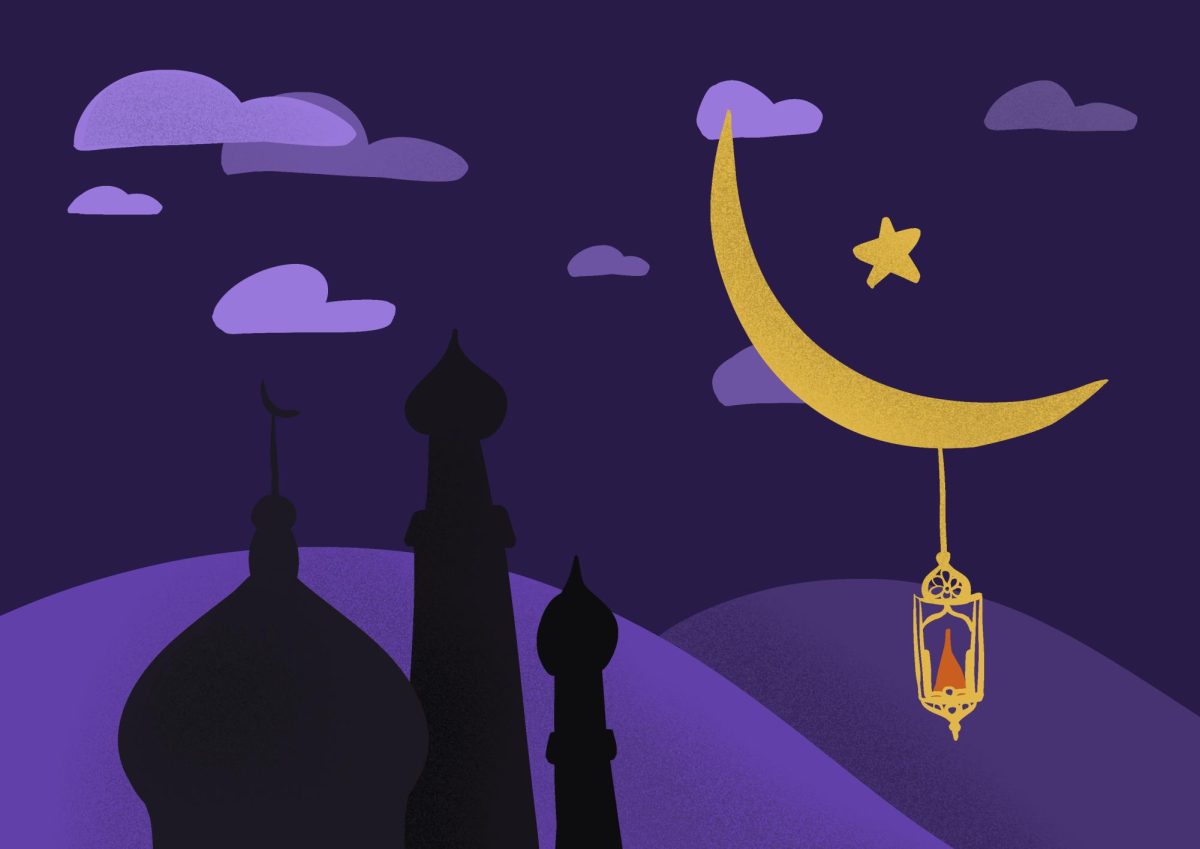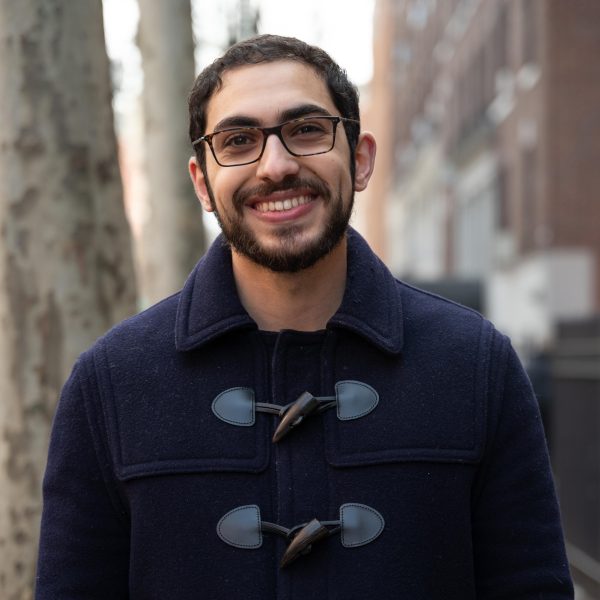During Ramadan, Muslims around the world congregate to celebrate the month-long celebration through prayer, fasting, reflection and community. Ramadan is the ninth and most venerated month of the Islamic calendar, with many Muslims considering it a time for believers to grow closer to their faith and community by fasting from dawn until sunset, actively refraining from sinful activities and giving charity to those in need.
“It is a month of ibadah, remembering Allah, and getting closer to your religion,” said CAS first-year Abdul Mendahawi.
During the holy month, Muslims typically wake up before dawn to eat suhoor, the pre-fasting meal, and after sunset, they break their fast during iftar. This routine is followed throughout the month and is concluded with Eid al-Fitr — the Holiday of Breaking the Fast — which is celebrated in various ways across different cultures with elaborate cuisine, family gatherings and events.
“It is a month of re-finding ourselves after being lost for a year,” Tisch first-year Zunaira Ahmad said. “It is a chance to reconnect with family and friends.”
On campus, the Islamic Center at NYU is the center of most celebrations, as students, staff and visitors come together to observe the month. Located on the fourth floor of the Global Center for Academic and Spiritual Life, it is the primary point of congregation for NYU and many non-NYU Muslims and is where prayers and iftars are held during Ramadan. It is fully self-funded, relying primarily on donations with no financial support from NYU. Led by Khalid Latif — NYU’s chaplain and the executive director of its Islamic Center — the center is an essential place for Muslim students, as it provides them with a safe community and a sense of belonging.
“The Islamic Center here is great,” CAS sophomore Sophia Dabsheh said. “They hold iftar every single day. They also hold maghrib prayer, isha prayer and taraweeh prayer.”
Dabsheh is a frequent contributor to the Islamic Center’s events, and to the Muslim Student Association, one of many student-led Muslim groups on campus. NYU’s Muslim Student Association also serves to advocate for Muslim students on campus. According to Dabsheh, students have access to a new prayer room space in Bobst Library, and also extended time at the Paulson Center gym during Ramadan.
“There are a lot of different programs the Muslim Student Association and the Islamic Center hold for students here,” Dabsheh said. “There is always something to go to. If you want to have someone to talk to, as well, they are very open. It is a very welcoming community.”
Since community is an essential aspect of Ramadan, fasting away from home can be more challenging. Typically, students gather to eat suhoor and iftar with their families, and they find comfort in observing the holiday with their loved ones. At NYU, students are required to become more self-sufficient, and find a community of their own.
“It’s a lot of independence, but it is nice,” Mendahawi said. “I love being with my friends. There is a million percent a community for me. They are family.”
For international students, the transition can be even more difficult, as they must not only celebrate far from home, but also assimilate to a completely different environment. Aziz Maher, a graduate student in the School of Global Public Health, is an international student from Saudi Arabia, and this is his first time celebrating Ramadan outside of his home country.
“I thought it was going to be something very hard, and I thought it would be very lonely and strange,” Maher said. “But actually no, what I am noticing and experiencing is the opposite. I feel like I am almost home.”
Without a doubt, Ramadan can take a physical and mental toll on students, as fasting can impact academic performance and being away from home for the holiday can be challenging. Despite NYU’s efforts, some students feel the university could be more supportive.
“I feel as if a lot of students at NYU are scared to reach out to their professors,” Dabsheh said. “For exams, for example, we do not get accommodations, we don’t get longer time. Or maybe we want an 8 a.m. lecture recorded, or maybe extended hours for homework, because our brains only function after sunset.”
Though the university does have an extensive policy regarding religious accommodations — such as including “inclusive language” in syllabi and a stated, required support from faculty — many students still feel a disconnect between themselves and staff regarding Ramadan.
“Prayer should not be rushed, and taraweeh is very late,” Ahmad added. “Forcing us to find other masjids outside NYU is very inconvenient and unsafe that late at night.”
Ramadan at NYU will never be like it is at home. However, students manage to work around obstacles and cherish the experience they have at school. Though most of the NYU community does not celebrate Ramadan, the values practiced throughout the month remain relevant to all. As Muslims reflect and grow closer to those around them, take it as an opportunity to do the same, as New York City’s fast-paced environment can sometimes make us lose track of ourselves.
Most importantly, Ramadan Kareem to those celebrating.
Contact Gabriel Giacomelli at [email protected].
























































































































































